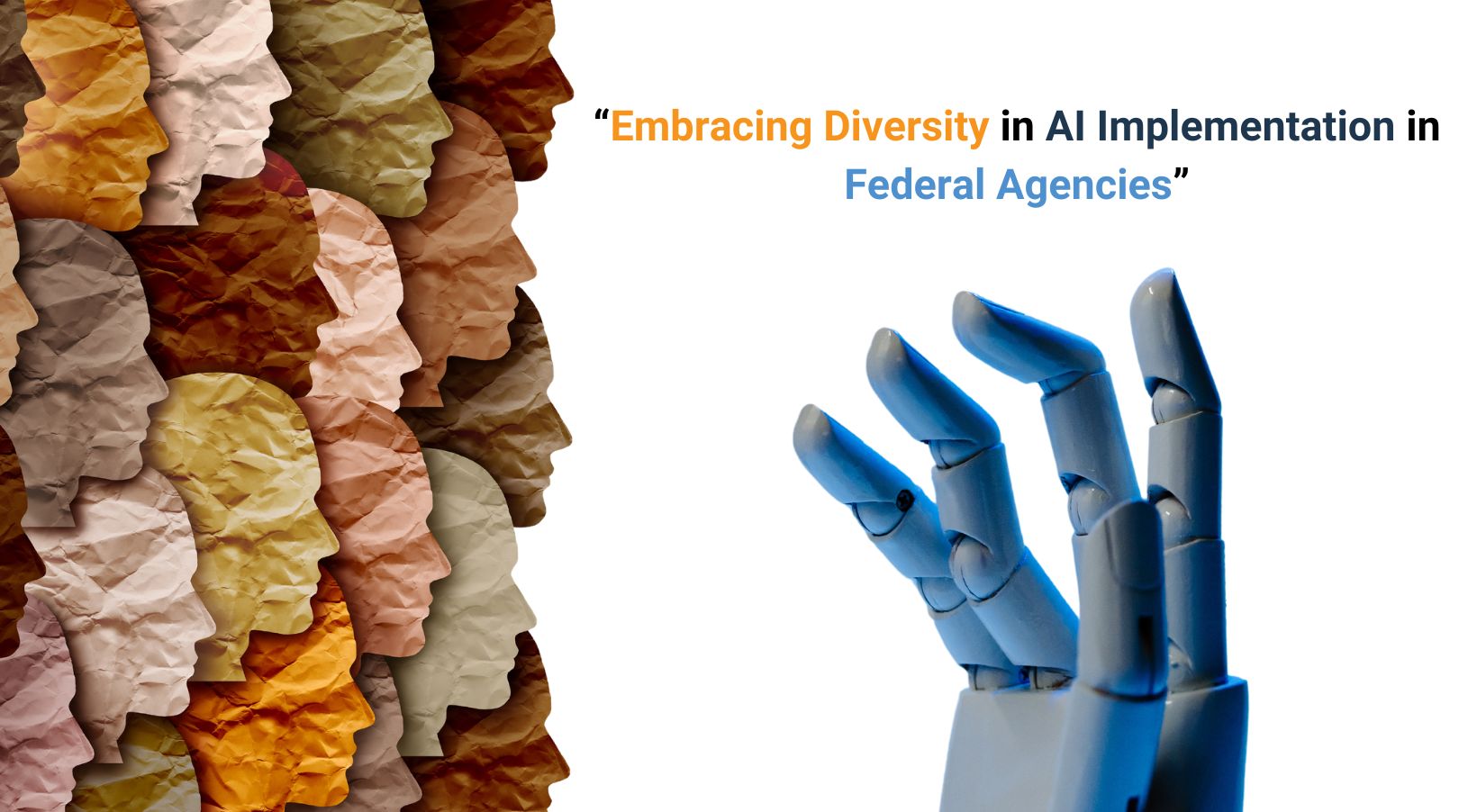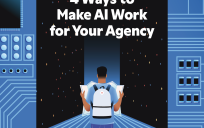As the digital landscape evolves and artificial intelligence (AI) becomes increasingly integrated into decision-making processes, the need for accountability in diverse perspectives and voices becomes more apparent. In a recent podcast episode, I discussed the realm of AI implementation within federal agencies and the importance of embracing diversity. Let’s explore why diversity is crucial in AI development and decision-making at the federal level and how it can prevent biases while promoting inclusivity.

Why Diversity Matters in AI Implementation:
- Mitigating Biases: Just as a diverse team brings varied perspectives to the table, diversity in AI development helps mitigate biases that can inadvertently seep into algorithms. These biases, whether conscious or unconscious, can perpetuate discrimination and inequity if left unchecked. By fostering diversity in AI development teams, federal agencies can ensure that a wide range of perspectives is considered, leading to fairer and more inclusive outcomes.
- Enhancing Innovation: Diversity fosters innovation by bringing together individuals with unique backgrounds, experiences, and insights. In the context of AI implementation, this diversity of thought can lead to the creation of more robust and effective algorithms. By encouraging diverse teams to collaborate, federal agencies can unlock creative solutions to complex challenges, driving progress and excellence in AI development.
- Reflecting the Population: Federal agencies serve diverse populations, and AI systems deployed by these agencies should reflect that. By incorporating diverse perspectives in AI decision-making, agencies can better understand and address the needs of all citizens, ensuring that AI systems are equitable and responsive to the communities they serve.
Preventing Biases in AI Implementation:
- Data Collection and Representation: Diversity in AI begins with diverse datasets. Federal agencies must ensure that the data used to train AI models is representative of the populations it will impact. This requires careful consideration of factors such as race, gender, age, socioeconomic status, and more. By incorporating diverse datasets, agencies can reduce the risk of biases in AI algorithms and promote fairness and accuracy in decision-making.
- Algorithm Design and Testing: Diversity should also be prioritized in the design and testing of AI algorithms. Multidisciplinary teams with members from diverse backgrounds can identify and address potential biases throughout the development process. Additionally, robust testing procedures, including sensitivity analysis and bias detection techniques, can help uncover and mitigate biases before AI systems are deployed in real-world settings.
- Continuous Monitoring and Evaluation: The work doesn’t end once AI systems are implemented. Federal agencies must continuously monitor and evaluate their AI systems to ensure they remain fair, transparent, and accountable. This includes ongoing audits, stakeholder engagement, and feedback loops to identify and address any biases or unintended consequences that may arise over time.
Conclusion:
In the journey toward building more equitable and inclusive AI systems, diversity is not just a buzzword — it’s a fundamental principle that must be embraced at every stage of development and implementation (see the recent AI Bill of Rights). By prioritizing diversity in AI development teams, data collection practices, algorithm design, and ongoing monitoring efforts, federal agencies can harness the power of AI to drive positive change while minimizing biases and promoting inclusivity for all.
Max Aulakh leads Ignyte Assurance Platform as the Managing Director focused on helping organizations cut through cyber security challenges. Max is a former U.S Air Force data security & compliance officer. As a Data Security and Compliance Leader, Max has implemented security strategies working directly with CxOs of global firms.
His latest work focuses on meeting high assurance standards involving federal cloud computing. He has also successfully guided Ignyte through the 3PAO, management of Air Force led Cooperative R&D Agreement (CRADA) and now helps other organizations navigate their FedRAMP challenges.
Max graduated with a Bachelors from Wright State University, Computer Science from American Military University and Criminal Justice Associates from Community College of the Air Force. Education is supplemented by several industry credentials: PMP, Certified Scrum Master, CISSP, and graduated from AMU with an Associate’s in General Studies — Computer Science in 2008 and Bachelor’s in Information Systems Security in 2009.





Leave a Reply
You must be logged in to post a comment.